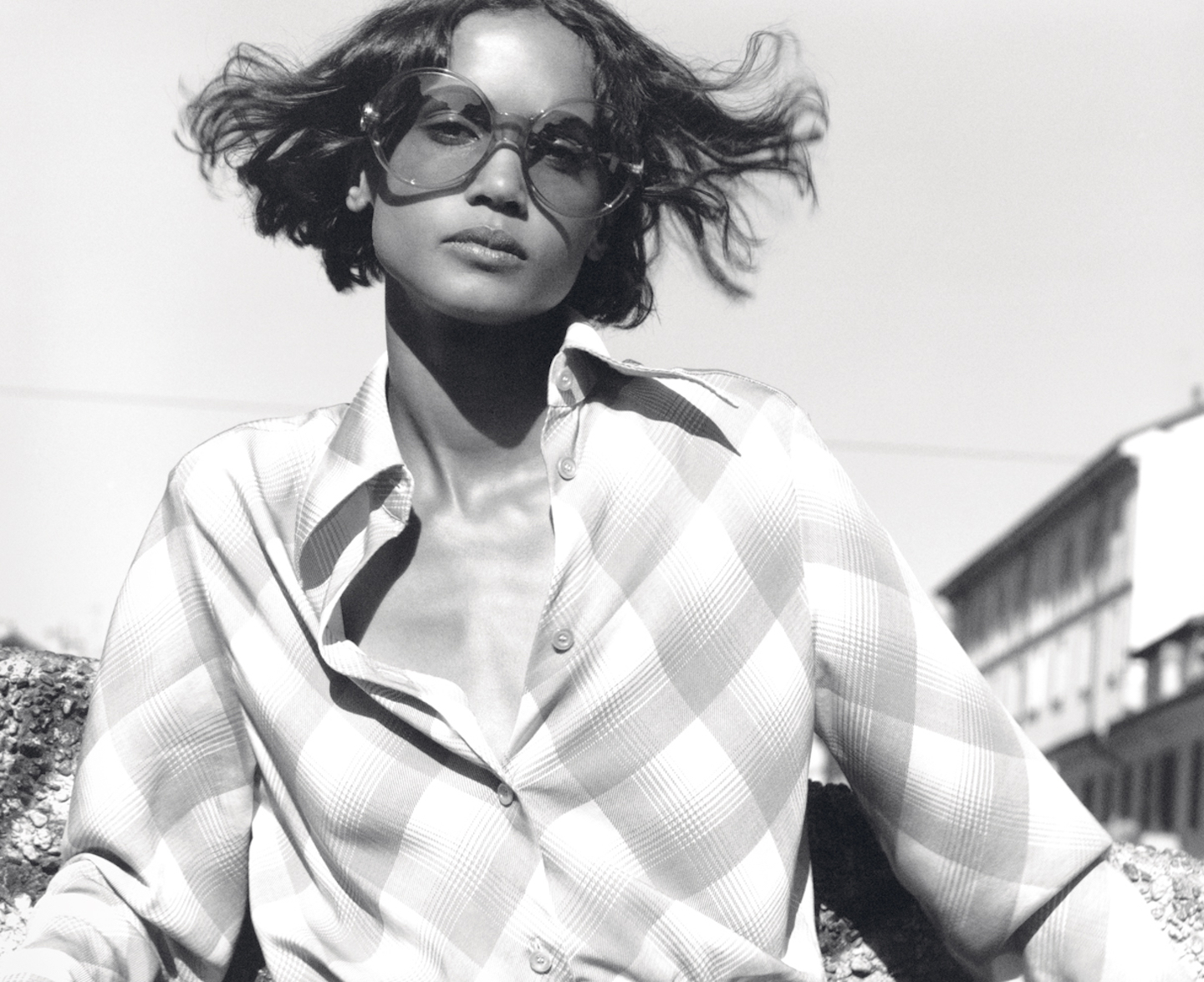This story originally appeared in i-D’s 40th Anniversary Issue, no. 361, Winter 2020. Order your copy here.
Nature is healing, so why shouldn’t fashion? When Alessandro Michele witnessed a wild boar roam the streets of Rome during the peak of lockdown, he knew something had to change. Though his quixotic, time-hopping vision of fashion has transformed the fortunes of Gucci (since his arrival in 2015, the company has more than doubled into a $10.5 billion megabrand), Alessandro, like so many of us, has woken up to a new reality in 2020, mainly that less is more.
That may sound ironic considering Michele’s ornate aesthetic definitely subscribes to the “more is never enough” mantra, but as he puts it: “Our reckless actions have burned the house we live in”. So, in perhaps one of the boldest moves since his arrival – and there’s been a few – he announced that Gucci would be scaling back its collections, presenting just two seasonless, genderless collections a year.
What does that mean for the epic spectacles the designer has staged everywhere from Westminster Abbey to Chateau Marmont? i-D’s Editor-in-Chief Alastair McKimm caught up with Alessandro over FaceTime to talk fashion shows, youth culture and shaking up the system.
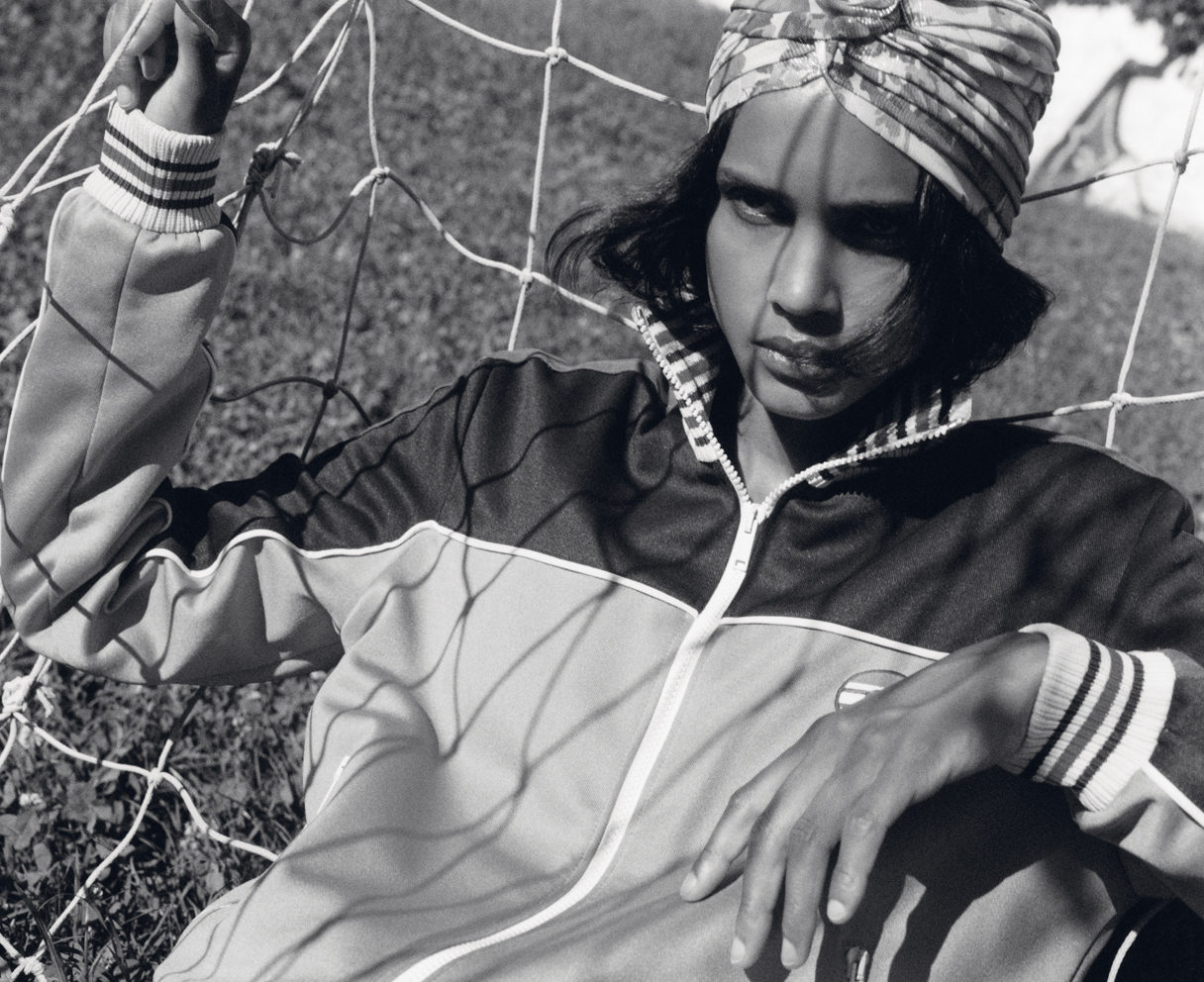
Alastair: Hey Alessandro, so nice to see you.
Alessandro: Nice to see you. Where are you now? London?
No, I’m in New York.
New York, New York. Wow!
How is everything? You’re in Rome?
I’m in Rome. Yeah. On a beautiful and kind of strange summer’s day in September. It’s super sunny and hot. There’s a beautiful light.
Thank you so much for doing this. We’re really honoured.
It’s an honour for me, but you know, it’s always a matter of time. Having a conversation is beautiful. It’s a gift. But time is always against everybody. We have a bit more time now, that’s the oddly beautiful thing about this really bad moment.
As I was preparing to talk to you today I realised the last time we were in the same room was in February in Milan at the Gucci show and just how much has changed since then, even though the world has been on a total pause since. The show in February was an amazing celebration of the power and glamour of fashion, the ritual of the fashion show, and all this is very important to those of us who work in the industry. So, after this six-month pause, how do you feel about a physical fashion show now?
My life before now was very tied to the idea of the seasonal timing of the fashion shows, as was yours I imagine. And with the last show in February I wanted to celebrate and investigate that. It was an investigation into the ritual of the show – and I wanted to investigate from every angle, from the audience to the characters on the catwalk – but it was a strange investigation because a few days later it felt like everything had changed. It was quite a mysterious thing to have this show before this very big change.
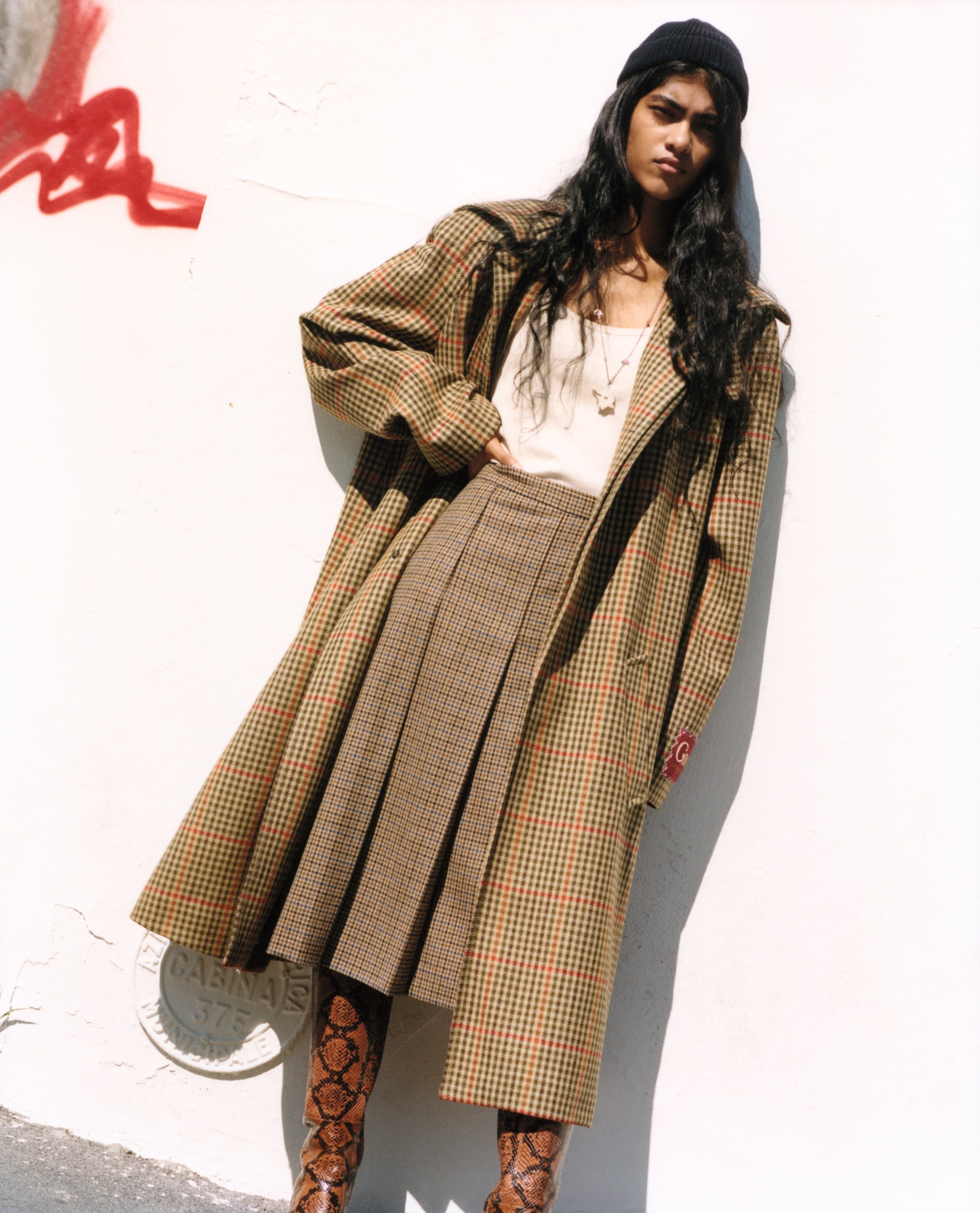
It was almost like this premonition of things changing forever. I came to Milan specifically for the Gucci show, I was running a bit late and in a rush to get into the show space, and to be surrounded by everybody in our industry – I really miss that now, you know. It doesn’t feel like September right now because I’m not at the shows.
For the last 26 years, I have spent September in Milan and now I’m in another place and everything looks different, everything feels different. Rome feels different, but maybe this is always Rome in September? Change, whether big or small, means something new is happening, which is exciting. This really is a time that everybody will remember forever. I’m not very nostalgic. I love the past but I’m not nostalgic. The past is just a beginning. I don’t think things will ever be exactly the same as they were before.
With the last show it felt like you’d anticipated all this because you were going behind the scenes of the show in February and then during lockdown everyone was looking inwards. That continued in the live-streamed Epilogue show, seeing the design team at work, modelling the collection.
I was curious to create something using the language I use every day when I speak to the design team. It feels a little bit rebellious to show the design team at work, but then also really beautiful to give them a chance to see the project through to the end, usually their relationship with a garment ends when it leaves the studio, so we had them model the collection too. It’s about embodying a dream. It’s important to make everything I do feel like it is of the time it was created in. I wanted to explore the idea that fashion is human, and because it is human it makes it more magical. We needed to break all the rules. It needed to be a little boring, to show the waiting around, because creativity takes time!
It does take time, and there’s something very inspiring about the process, you know. Sometimes nothing is happening and then there’s a crescendo of activity. What was the response to the work in the end with the live stream and everything?
After the first 15 minutes we completely forgot that there were cameras recording, especially as we are quite used to having cameras on set. It was interesting just to have a camera set up and watching us, like Big Brother, with no director cutting or putting together something more glamorous. People could sit and watch it for five hours or five minutes and I loved that. Something could be happening or nothing could be happening. I mean, I’m a voyeur. I love to spy. I think everyone loves to spy, there’s something beautiful about the things that are hidden, they are unpredictable and natural. Here the image wasn’t clean or neat; it was just there for people to watch, even if they just wanted to watch for a few minutes.
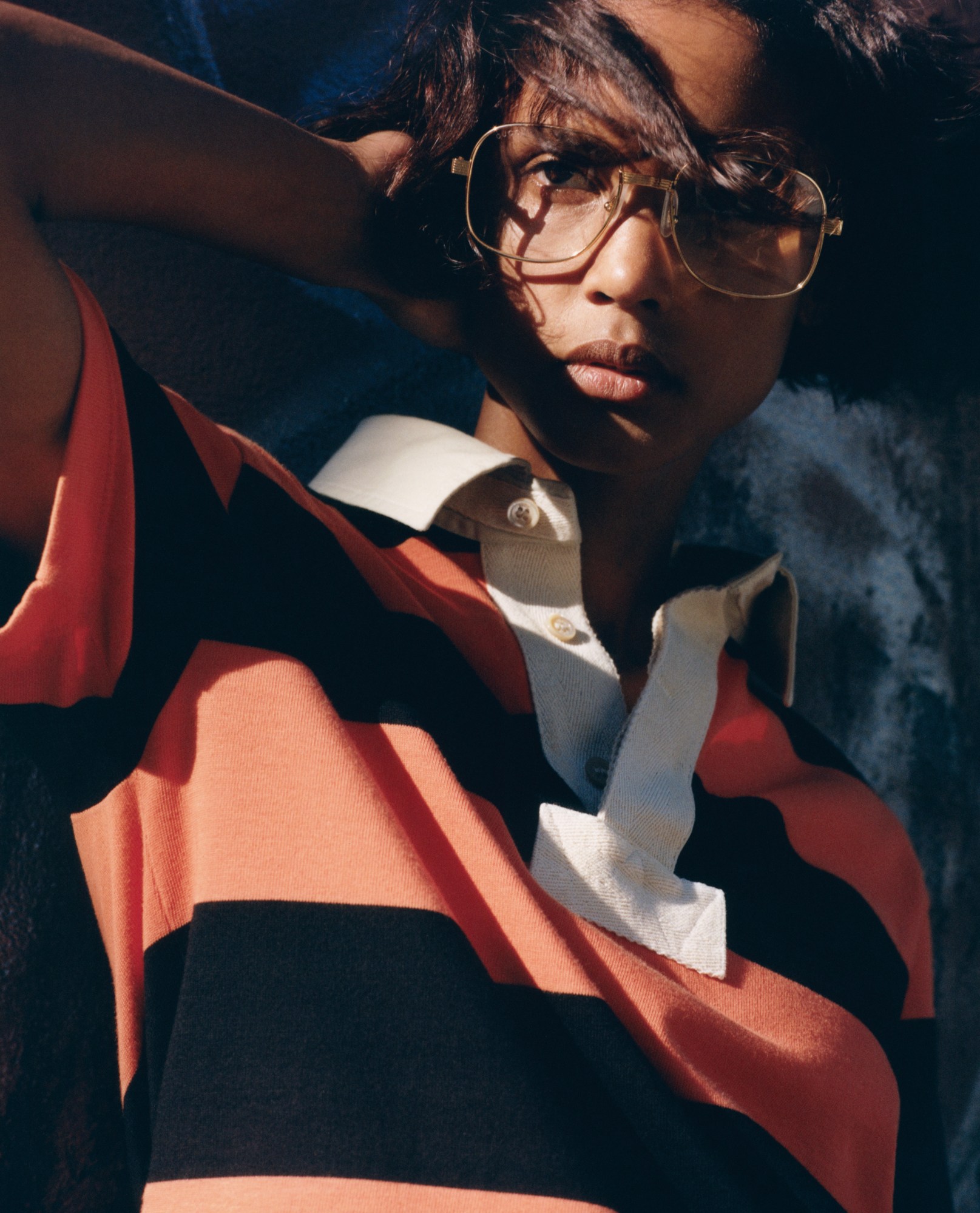
How have you felt working with your design team over the last six months during lockdown?
It’s been a beautiful moment because we did everything in a different way. We found new ways to communicate and new ways to listen to each other. Human beings are very powerful because they always find a way to connect with each other.
Over the months, I’ve really felt so connected to people, even though we’ve not been physically together. I’ve felt so lucky that I have the job that I do, that I’m able to speak to so many different people every day because it really kept my spirits up during the last six months. At the beginning, I thought we wouldn’t be able to work anymore and then we just ended up even closer as a team. We just adapted and we evolved and we found our way.
I think we are all taking things forward from this situation. For example, we are talking to each other right now and sharing this conversation and maybe one year ago we would not have been as open to doing it. Maybe we didn’t understand the tools we had at our disposal? Before, if someone asked me to do an interview over FaceTime I would have said no, but there are beautiful human relationships available to us through technology.
Early in lockdown, you announced you were going to just do two seasonless collections a year. There are issues around sustainability within the luxury fashion market but, during your time at Gucci, it’s been hugely successful creatively and financially. What inspired your decision to go to seasonless, even though everything was going incredibly well with the way it was?
At the very beginning of the lockdown I felt depressed because I realised that nothing in fashion had changed for years. I don’t know exactly, but I felt that something needed to change, nothing could be as it was before. It was like a revelation. I was alone in my apartment and nature was blooming outside, the birds were everywhere, the city was still and I thought nature was calling me, saying that everything was too much and something needed to change. I love working on a fashion show, and I don’t want to sacrifice that but glorify it by not repeating myself.
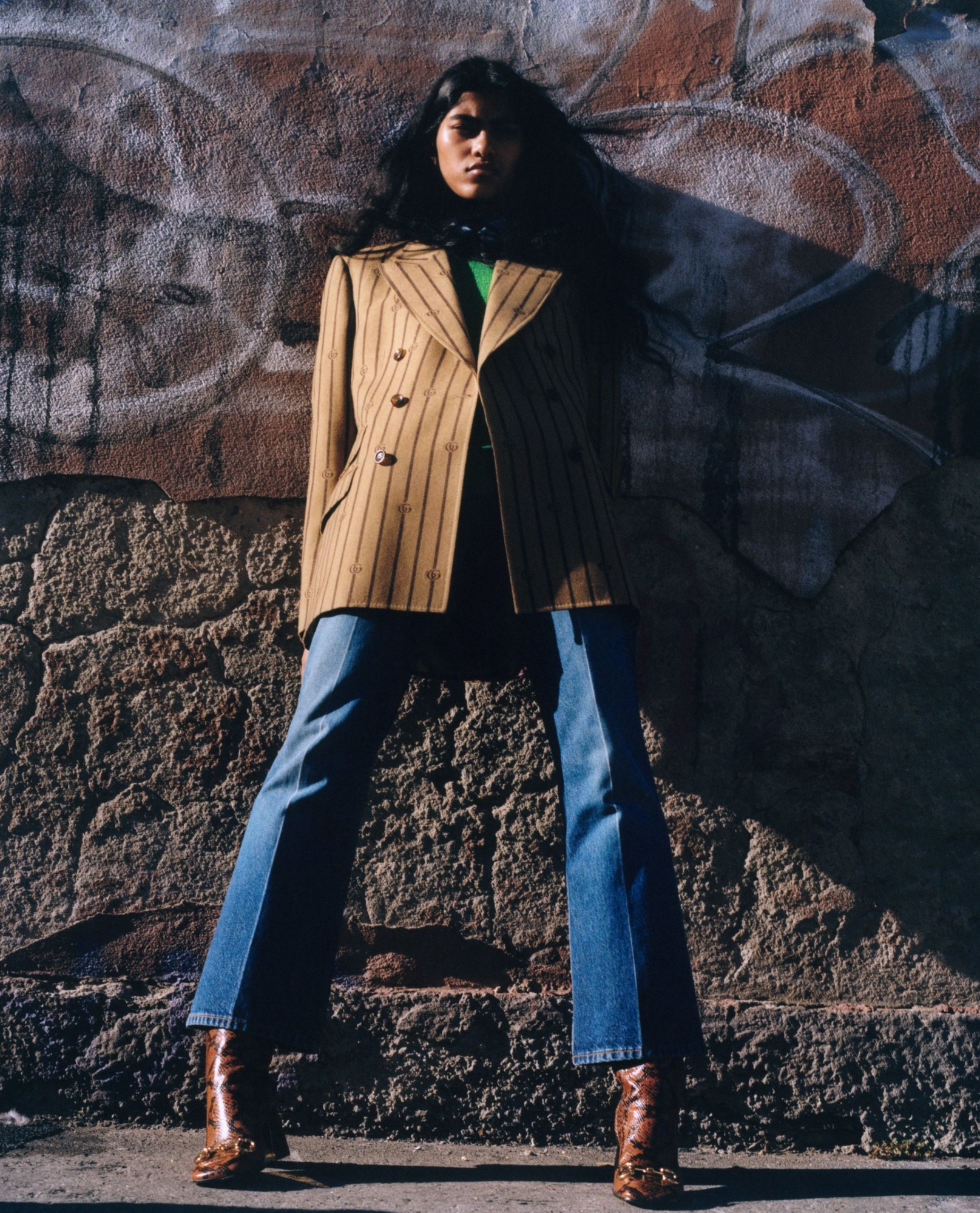
There is this ego that doesn’t want to admit that you can change. But then there’s something so beautiful and human about actually making different decisions as you grow and evolve. Your position in the fashion industry gives you this responsibility and you can actually make these big decisions that affect not just yourself and Gucci, but the whole industry. I’m hoping that other brands will also put their egos aside and see that what you’re doing at Gucci is the way that we should all be doing it.
It’s so strange to say, ‘OK, let’s go ahead like nothing happened’. Something has happened. You must be transparent with yourself and with the people that are working with the company. Fashion is not just about buying a bag. It’s a big audience, it’s a stage, and I hope people see what is happening here. Humanity needs a new energy, doing the same thing for 100 years doesn’t make sense.
We talk about ourselves as a global industry but then we’re still like, ‘In the winter, you wear a coat and in the summer you wear a dress’, but we’re actually travelling everywhere. We’re in different climates. We’re in different time zones. There’s no such thing as the season anymore because we move so much.
And we are just as conservative in the way we talk about cruise collections. We speak this old language. The world is changing. In fact, it changed a long time ago. But fashion doesn’t want change even though the energy at the heart of fashion is change.
It’s quite ironic.
It’s not about doing less but about finding a different way to meet each other.
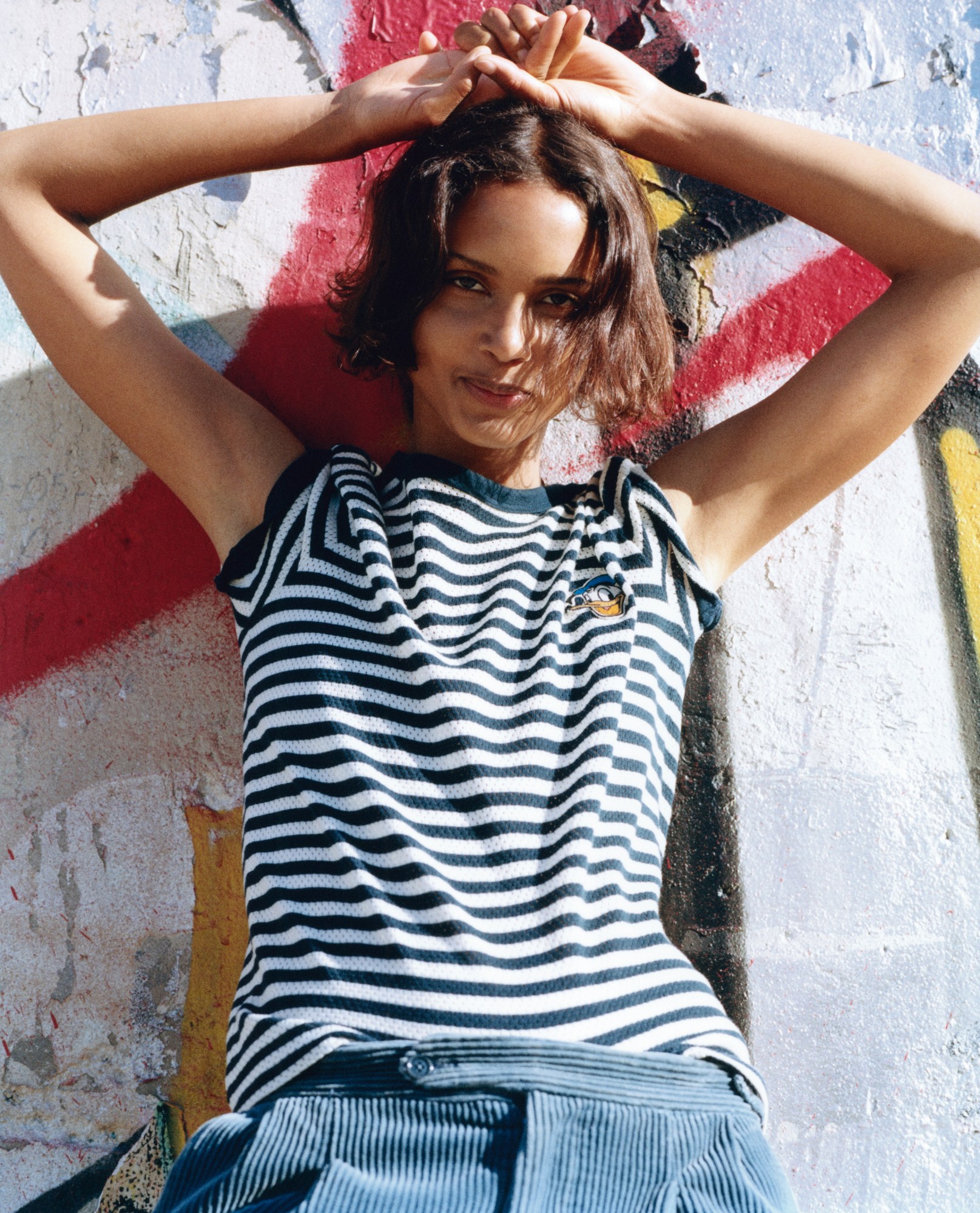
Fashion had stopped feeling human in a way because everybody was working to a point where it was completely unsustainable. Do you think that by doing less shows, your approach to them will change?
Maybe? I don’t know. Everything is a work in progress and we don’t have to have any rules, we have to think in a very free way. It’s about discovery. We’re exploring new territory. The modern idea of the catwalk came around after the destruction of the Second World War and I find the relationship between those two events fascinating. I’ve been trying to think of the fashion show as a kind of theatre, and to think of a new language for expression because it is very easy to think of it just as what existed, which is the language of commerce as well as art.
I keep thinking about this idea of transcendence, where it’s not about just working in the fashion industry, it’s about transcending fashion. It’s like Gucci has become a cultural institution, that’s really what you’ve created at Gucci. It’s a universe. You’ve been working in the industry for a long time and you’ve seen a lot of shifts in the role of creative director. What do you think is the biggest shift in being creative director today, compared to 20 or 30 years ago?
First of all, the young generation back then didn’t really know about fashion. When I was young, teenagers were not in touch with fashion but they were in touch with the street, that’s where their style came from. Fashion was for the elite and it spoke in the language of the elite, it was a bubble, an amazing world but a bubble. Now, 13-year-old kids stop me in the street and they know about me and Gucci.
We are not just an atelier anymore and I’m not just a fashion designer. Gucci occupies the same reference point as a pop band for a lot of young people. Gucci is like Woodstock in the imagination. And a lot of young people, they are not rich and they don’t care about wearing a real Gucci outfit, but they want to feel ‘Gucci’ and they can feel it without being a customer. So, what is change then? We are not just the creators of clothes but we are also making costumes for characters and I’m trying to put the people in the position to dream a world that I dream. I think there’s been a real revolution in how a lot of people think, because they are now interested in freedom, liberation, expression. The rules aren’t very interesting anymore.

What do you find so inspiring about young people and youth culture at the moment?
Growing up, the idea of style was the idea of freedom for me. I found a freedom in the way I looked from a young age. And other people tried to force me to be something else, so I understood the power of looking a certain way, because it was rebellious but I was just being myself. I think it is very radical to be yourself.
There’s something mysterious about youth. We are in this moment where everything is really changing and young people instinctively understand it and are conscious of it. Harry Styles, he is a big friend of mine but has something mysterious to him, he is both very simple and very complicated. Youth is like a deep secret. It is very fascinating to me.
Gucci is very much like a youth movement in its own way too, like you said.
Yeah. That’s why when people ask me about the way we work, the marketing of the brand, for example, I find it hard to explain, but when you are making music you are not thinking about how you are going to sell an album.
Yeah and that’s why the first album is always the easiest.
I always think about my first show, which I completed in about a week. I was so fresh then and I try to keep that sense of freshness. I don’t want to feel heavy. I try to take care of the childlike part of my soul, to be childlike is a state of mind. In European culture, when you become a man a lot of things are forbidden.
I think it’s vital to be childish.
For our job it’s the most important thing, this mental energy, to be in a position where you can be free of what people expect of you.
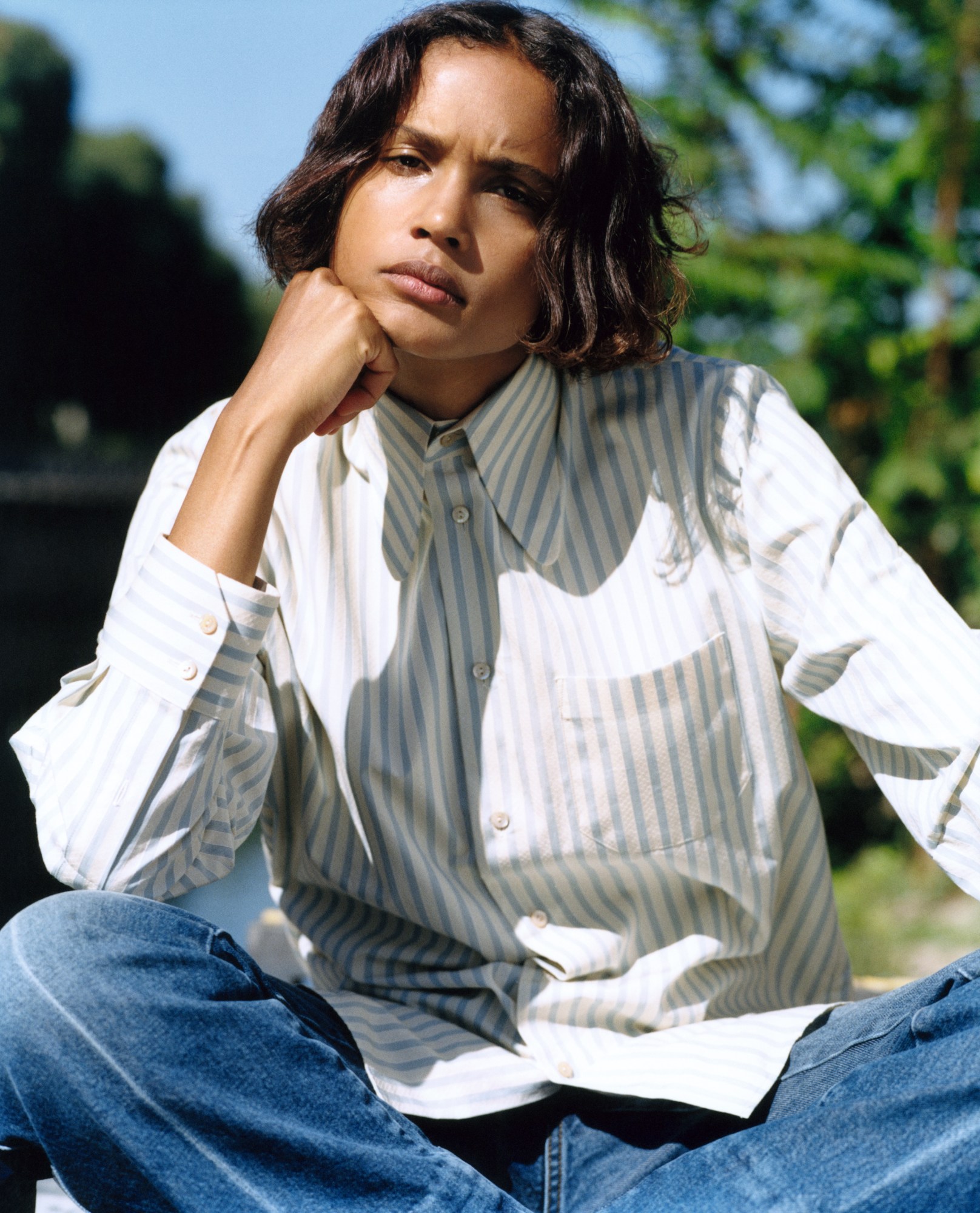
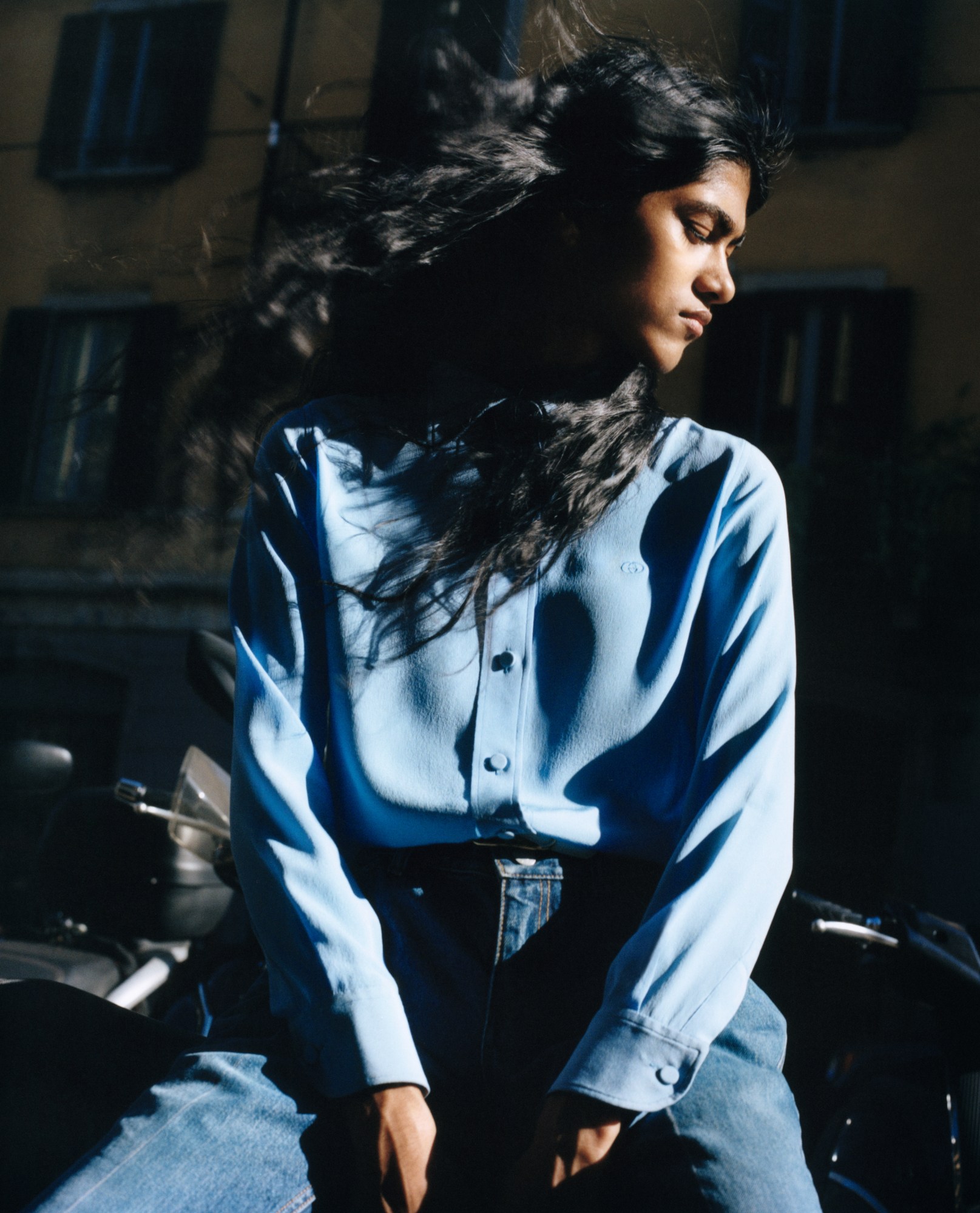
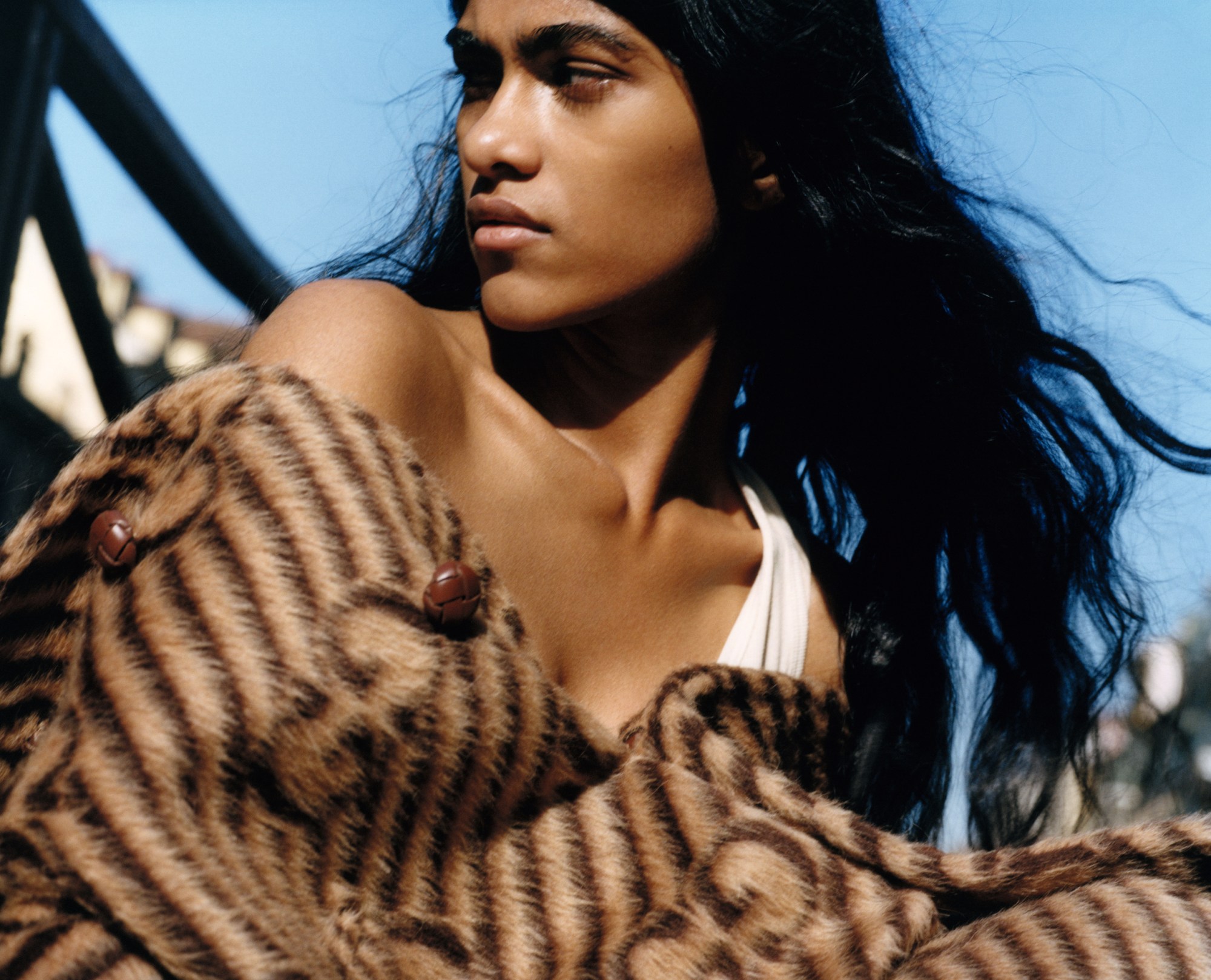
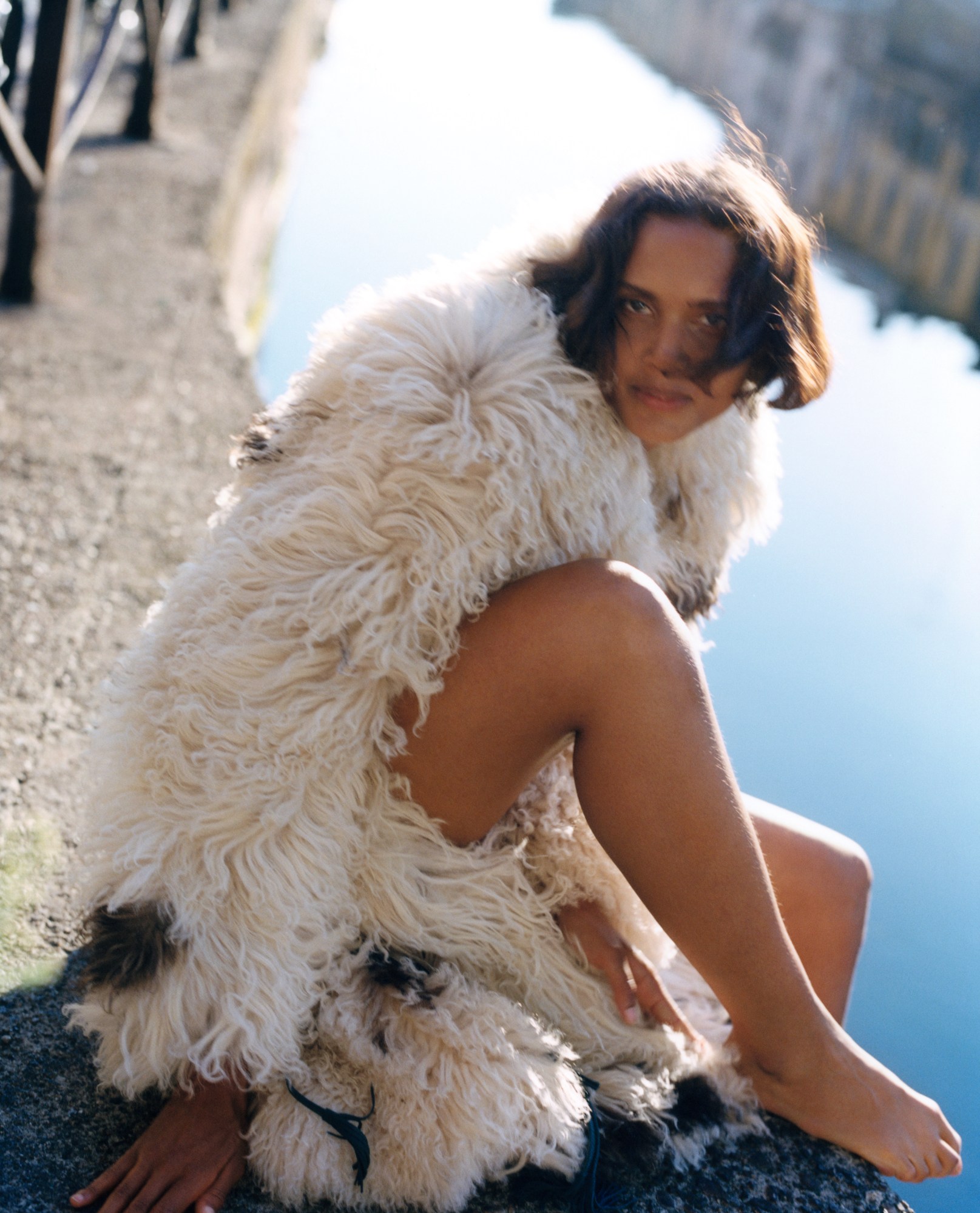
Credits
Photography Laura Coulson
Styling Max Clark
Hair Mari Ohashi at LGA management using Bouclème.
Make-up Ciara O’Shea at LGA management using GUCCI beauty.
Nail technician Flavia Cela using Sally Hansen and Mylee.
Photography assistance Jack Symes and Sara Zanoni.
Styling assistance Marina de Magalhaes.
Executive producer Dario Callegher.
Producer Rita Rainis.
Production co-ordinator Livia Eleonora Anglano.
Production assistance Curzio Cremaschi and Christopher Sala.
Retouching: IMGN Studio.
Casting Alexandra Antonova for DMCASTING
Models Ashley Radjarame at IMG and Malaika Holmen at Next
All clothing and accessories Gucci Resort 21.
